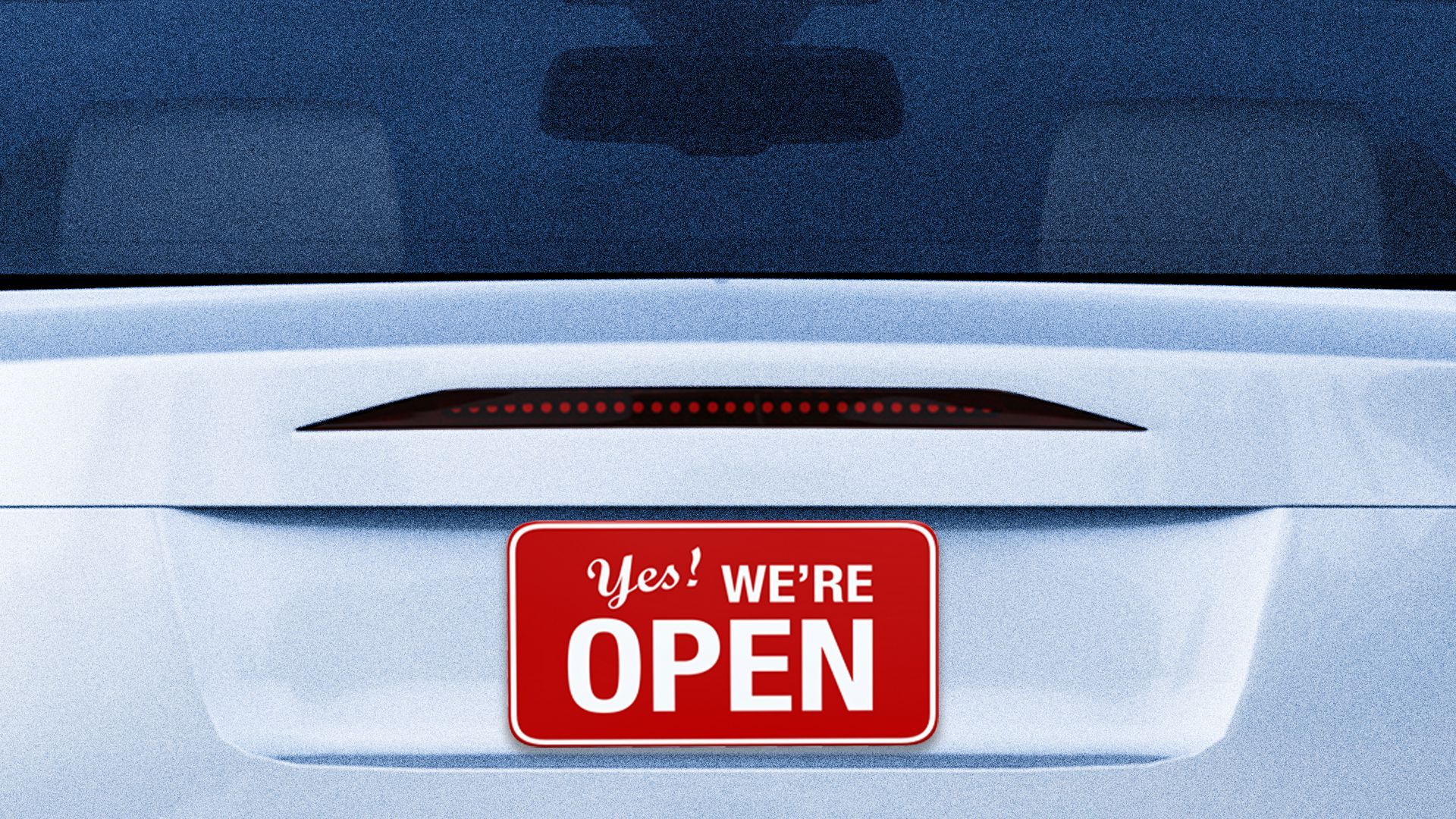Autonomous Vehicles could be huge for small businesses
Add Axios as your preferred source to
see more of our stories on Google.

Illustration: Sarah Grillo/Axios
While Ford's autonomous vehicles are learning to drive on Miami's bustling streets, the company is simultaneously mapping out a business strategy for the driverless future by tapping local merchants for input on its first purpose-built AV.
Why it matters: The U.S. market for AVs will be $332 billion by 2026, according to Ford. About 40% could be for goods delivery including small businesses that are often constrained because they can't afford to hire drivers or buy delivery vehicles for only sporadic use.
The background: Ford is testing a small fleet of AVs — with safety drivers but simulating fully autonomous operation — in hopes of deploying tens of thousands of self-driving vehicles to move people and goods in multiple cities, starting in 2021.
Lessons learned from those tests — about preferences for interacting with driverless vehicles and how the car's interior might be configured to keep food orders separate or dry-cleaning pressed — will influence Ford's AV design and refine its business strategy.
- Today, ride-hailing costs about $2.50 per mile. Cut out the driver and Ford estimates that cost could fall to $1 per mile, boosting demand.
- Add in revenue from other things like fleet management, deliveries and digital content and they think the profit potential dwarfs the 6%–10% margins of traditional auto-making.
“The opportunity of that market is massive. It’s a margin that is like no automotive markets today."— Sherif Marakby, president, Ford Autonomous Vehicles
To ensure a profitable business, the company says it will need to keep its AVs running round-the-clock:
- During peak commuting times, they'll be used mostly for ride-hailing by people looking to complete the "last mile" of their trip.
- During business hours they could be used for delivering packages or food.
- In the evening, they might be turned into roving party buses, ushering fans to a concert, for example.
Details: Ford is working with 7 local Miami merchants to assess the level of demand for commercial deliveries using AVs. The 2 month trial was eye-opening, Lydia and Roland Losas of Giralda Dry Cleaners told me.
- By assigning the AV test vehicle to bring dirty laundry from their four stores to their central cleaning plant, they freed up 2 employee drivers to serve customers at luxury hotels.
- Using an AV for laundry delivery helped them avoid costs like car payments, liability insurance, gasoline, tolls and part-time seasonal help.
- They think it opens the door for new growth opportunities like wash-and-fold services for college students, Lydia said.
The bottom line: Automakers are targeting small businesses as a potential market for AVs that might fill their intermittent needs, allowing them to save on labor and fixed costs.
